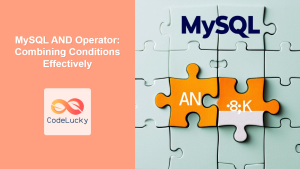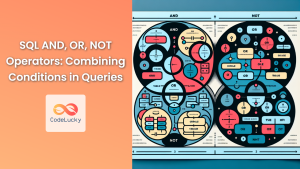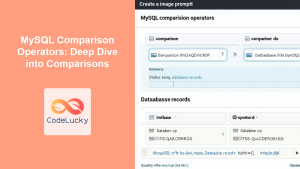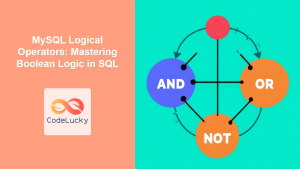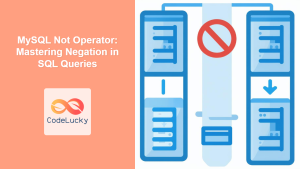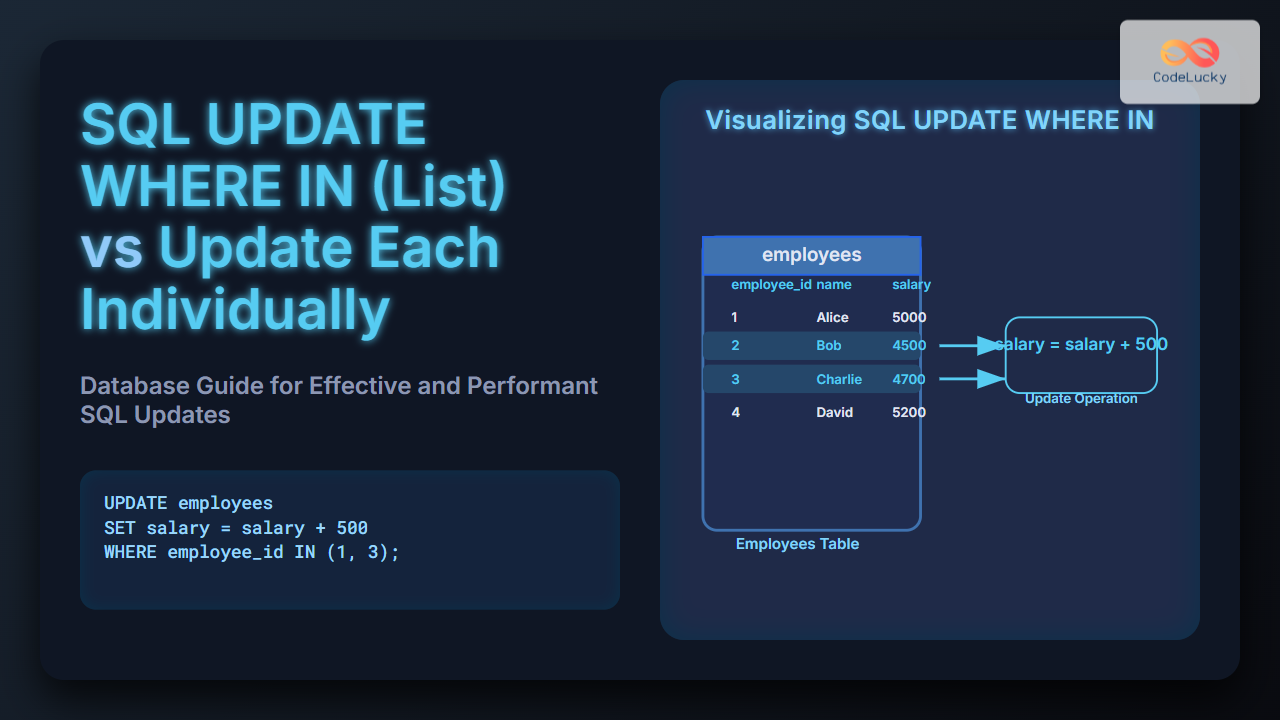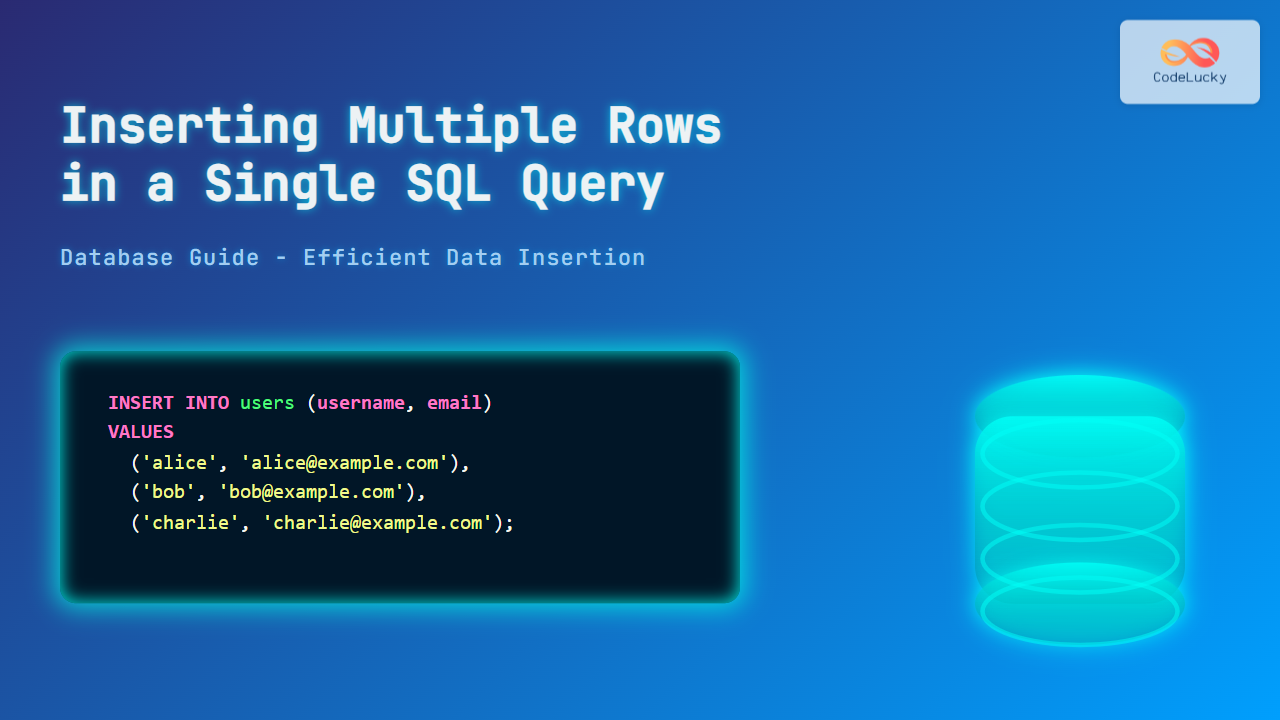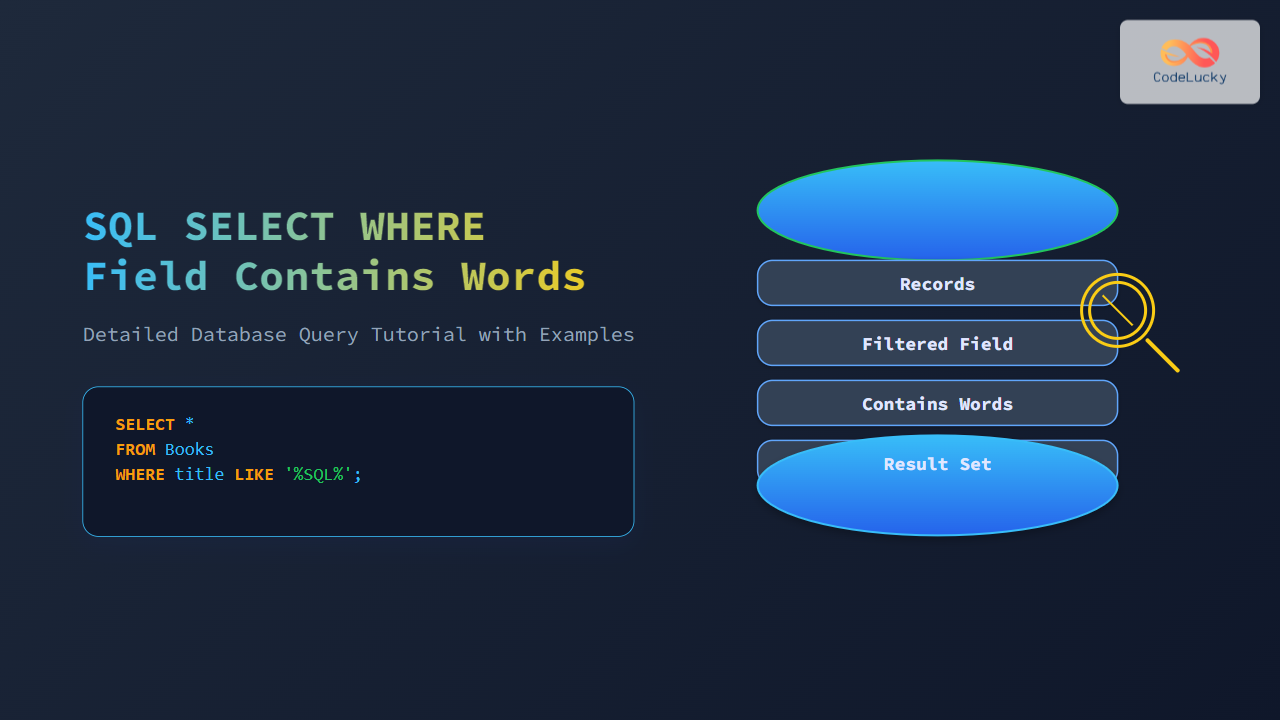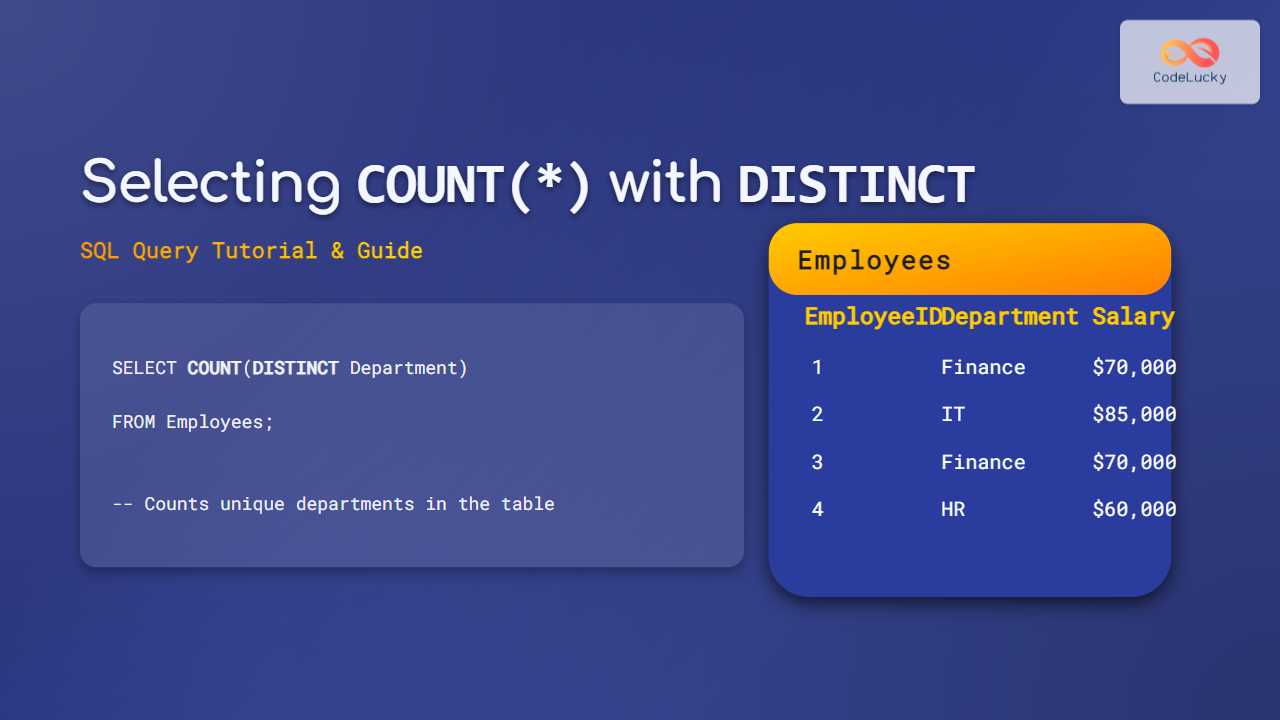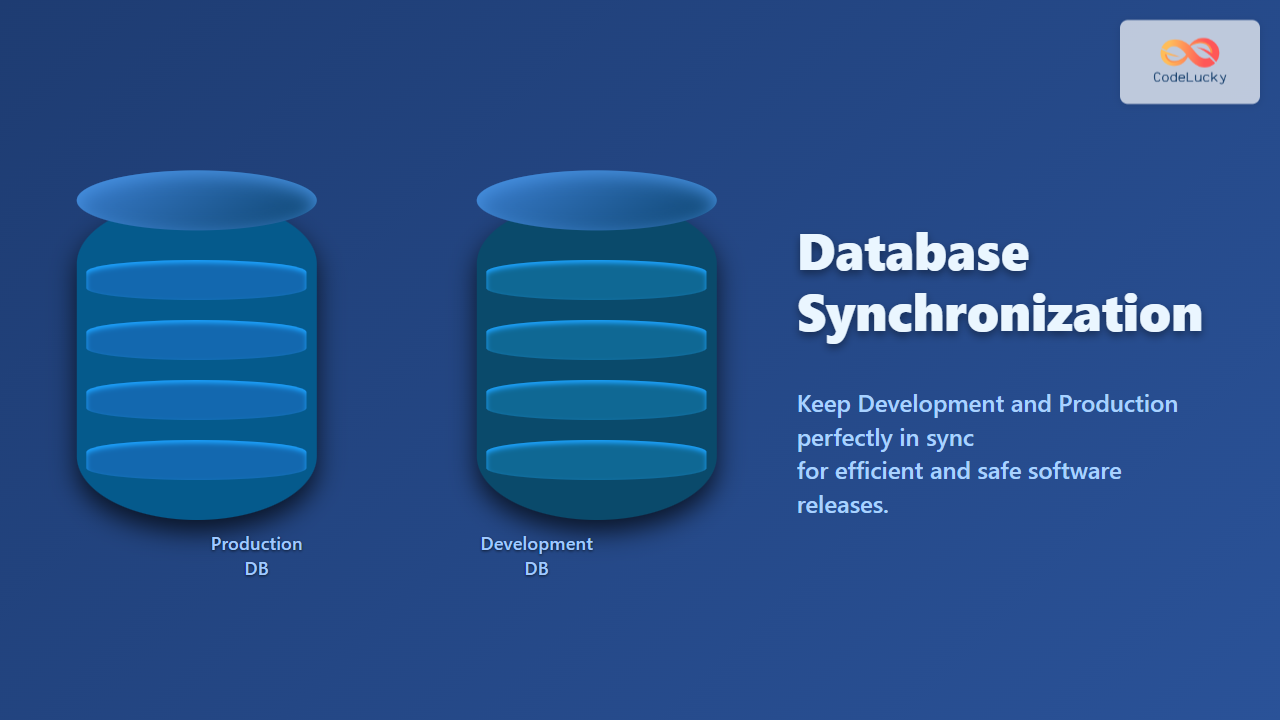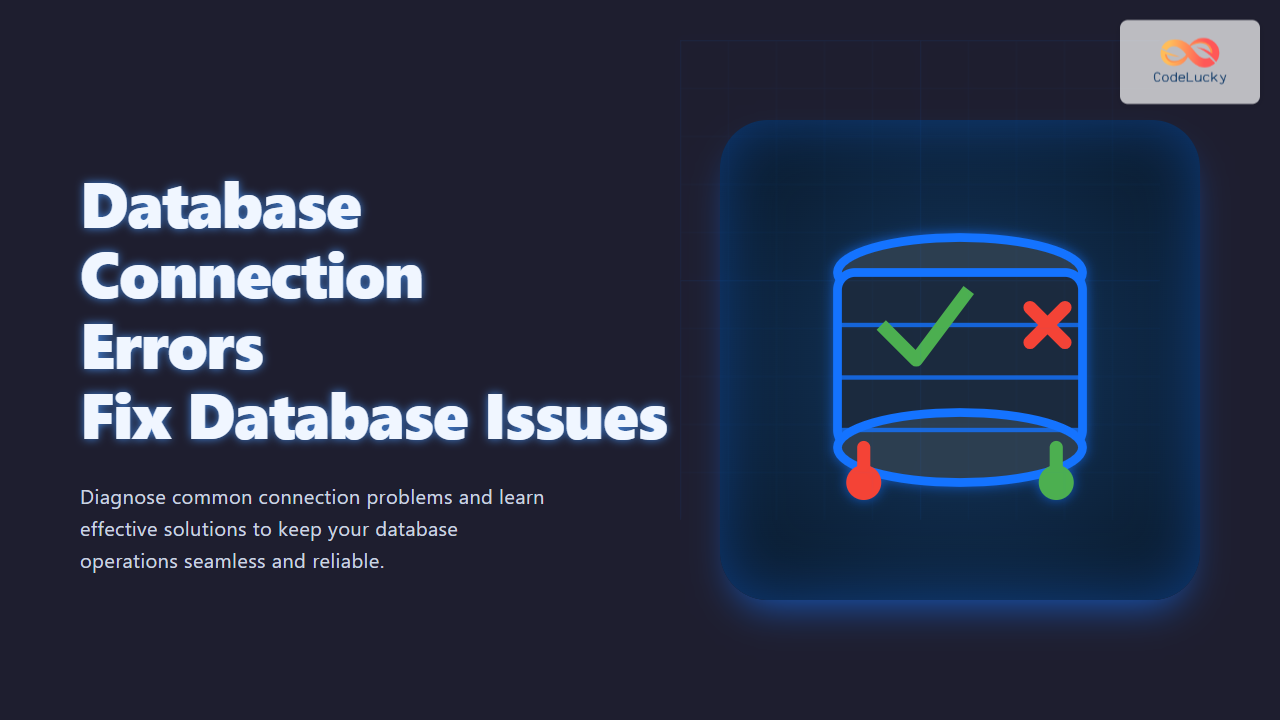The OR operator in MySQL allows you to combine multiple conditions in your queries, retrieving rows that satisfy at least one of the specified conditions. This is incredibly useful when you need to gather data that matches various criteria. 💡 Did you know? The concept of OR logic dates back to ancient Greece, where philosophers explored different ways to combine truths!
Why Use the OR Operator?
The OR operator is a vital tool for flexible data retrieval. Here’s why you should master it:
🌟 Key Benefits:
- Fetch records that satisfy multiple, mutually exclusive conditions
- Create flexible filtering logic in your queries
- Broaden the scope of your data retrieval
- Simplify complex filtering requirements
🎯 Fun Fact: While the OR operator is simple, its efficient usage can dramatically speed up your database performance, enabling quick retrieval of complex data sets!
Basic OR Operator Syntax
The basic syntax of the OR operator is straightforward:
SELECT column1, column2, ... FROM table_name
WHERE condition1 OR condition2;
This query will return all rows where condition1 or condition2 (or both) are true.
Let’s see it in action. Consider a products table:
| product_id | product_name | category | price |
|---|---|---|---|
| 1 | Laptop | Electronics | 1200 |
| 2 | T-Shirt | Apparel | 25 |
| 3 | Jeans | Apparel | 60 |
| 4 | Tablet | Electronics | 300 |
| 5 | Book | Books | 15 |
To retrieve products that are either in the Electronics category or cost less than $50:
SELECT * FROM products
WHERE category = 'Electronics' OR price < 50;
Output:
| product_id | product_name | category | price |
|---|---|---|---|
| 1 | Laptop | Electronics | 1200 |
| 2 | T-Shirt | Apparel | 25 |
| 4 | Tablet | Electronics | 300 |
| 5 | Book | Books | 15 |
🔍 Pro Tip: Always put parentheses around complex OR conditions to avoid unexpected behavior.
Combining AND and OR Operators
You can combine AND and OR operators to create complex filtering logic. However, be mindful of operator precedence. AND has higher precedence than OR, so use parentheses to control the evaluation order.
For instance, to find products that are either Electronics and over $1000, or any product priced less than $20:
SELECT * FROM products
WHERE (category = 'Electronics' AND price > 1000) OR price < 20;
Output:
| product_id | product_name | category | price |
|---|---|---|---|
| 1 | Laptop | Electronics | 1200 |
| 5 | Book | Books | 15 |
🌈 Interesting Fact: The correct use of parentheses in SQL queries directly mirrors their function in mathematics and formal logic, providing the precision needed to manipulate and retrieve data exactly as intended.
Execution Plans and Index Usage with OR
Understanding how MySQL executes queries with OR is critical for performance optimization. MySQL typically uses indexes to speed up data retrieval, but OR conditions can sometimes hinder index usage.
When a query uses OR on non-indexed columns, MySQL may resort to a full table scan which is much slower than index lookup.
Let’s analyze the execution plan using EXPLAIN command.
EXPLAIN SELECT * FROM products
WHERE category = 'Electronics' OR price < 50;
The output might look like this (simplified):
| id | select_type | table | type | possible_keys | key | key_len | ref | rows | Extra |
|---|---|---|---|---|---|---|---|---|---|
| 1 | SIMPLE | products | ALL | NULL | NULL | NULL | NULL | 5 | Using where |
In the type column, ALL means a full table scan is used which is not desirable.
🌟 Pro Tip: If possible, try to rewrite your OR conditions using UNION for better performance if index usage is not occurring as expected.
Optimization Strategies for OR Conditions
Here are some strategies to optimize queries with OR operators:
-
Use Indexed Columns: Ensure the columns in your
ORconditions are indexed. If possible, index columns that are most frequently used in queries. Refer to our earlier tutorial on MySQL Index Creation for guidance. -
Rewrite OR with UNION: In some cases, rewriting your
ORcondition usingUNIONcan be more efficient:
SELECT * FROM products WHERE category = 'Electronics'
UNION
SELECT * FROM products WHERE price < 50;
This approach can sometimes utilize indexes more effectively.
-
Consider Full-Text Indexes: For text-based columns, full-text indexes can be used to optimize
ORconditions that involve keyword searching. -
Analyze Execution Plans: Always use
EXPLAINto understand how MySQL is executing your queries. This can help you identify and address performance bottlenecks.
Performance Comparison
To illustrate the performance difference, let’s assume we have a large products table with thousands of rows.
Scenario 1: OR condition on non-indexed columns.
SELECT * FROM products WHERE category = 'Electronics' OR price < 50;
- Execution: Full table scan (slower)
Scenario 2: OR condition rewritten with UNION, utilizing existing indexes on category and price
SELECT * FROM products WHERE category = 'Electronics'
UNION
SELECT * FROM products WHERE price < 50;
- Execution: Index usage (faster)
In real-world scenarios, the performance difference can be significant, especially with large datasets.
Common Pitfalls to Avoid
- Overusing OR: Overuse of
ORcan make your queries complex and difficult to optimize. Consider alternative approaches if possible. - Ignoring Indexing: Always ensure your columns used in
ORconditions are indexed, whenever possible. - Incorrect Operator Precedence: Remember to use parentheses to control evaluation order when combining
ANDandORoperators.
Practical Use Cases
-
Customer Segmentation: Find customers who live in a specific city or have made a minimum number of orders.
SELECT * FROM customers WHERE city = 'Mumbai' OR order_count > 5; -
Product Filtering: Find products that belong to a category or have a certain price range.
SELECT * FROM products WHERE category = 'Electronics' OR price BETWEEN 50 AND 100; -
User Activity: Find users who have logged in during a specific period or have not logged in for an extended time
SELECT * from users WHERE last_login > '2024-01-01' OR last_login < '2023-01-01';
Best Practices
🎯 Follow these tips for better queries:
- Index the columns used in your
ORconditions - Use
UNIONto rewriteORconditions when appropriate - Always analyze the execution plan with
EXPLAIN - Avoid overly complex
ORlogic
Key Takeaways
In this guide, you’ve learned:
- ✨ How to use the
ORoperator to combine multiple conditions. - 📝 About indexing and how
ORimpacts it. - 🚀 How to optimize
ORqueries withUNION. - ⚙️ The importance of execution plans in SQL optimization.
- 🔗 Practical use-cases of
ORin real-world scenarios.
What’s Next?
Now that you’ve learned about the OR operator, you’re ready to move on to explore other logical operators and clauses. Our next tutorial will cover the NOT operator, a key element of SQL filtering logic. Keep practicing and exploring MySQL to become an expert!
💡 Final Fact: The OR operator, despite its simplicity, plays a key role in efficient data retrieval and forms an important building block for more complex queries. With this, you can now craft even more powerful and flexible SQL queries to solve complex business problems.


